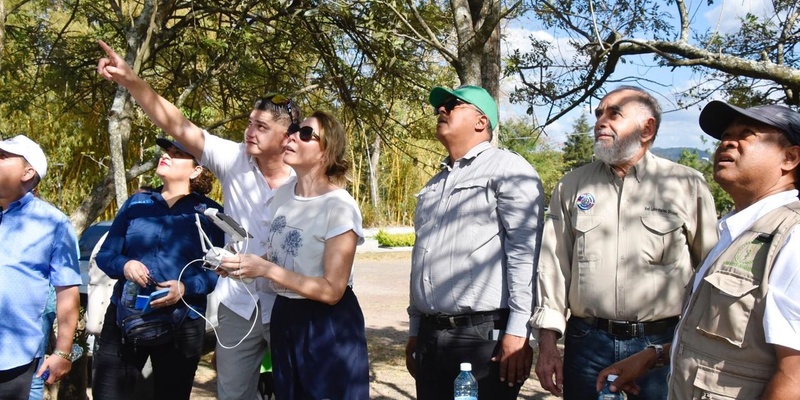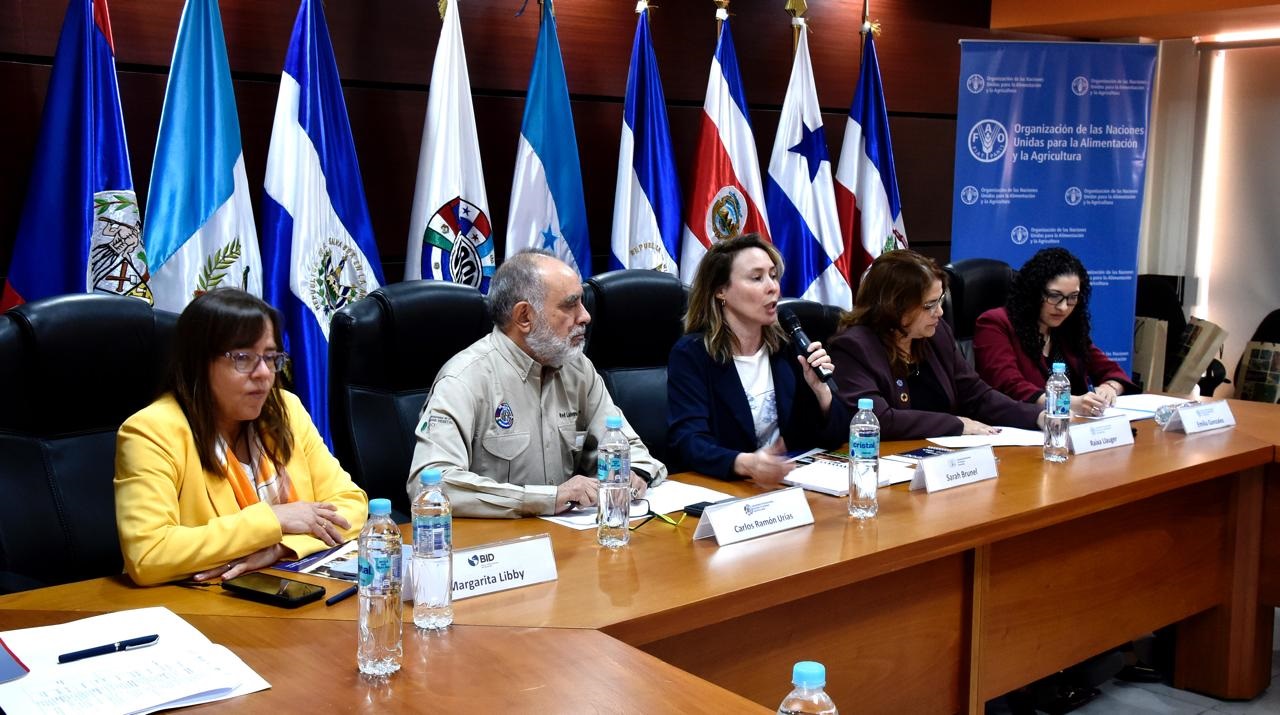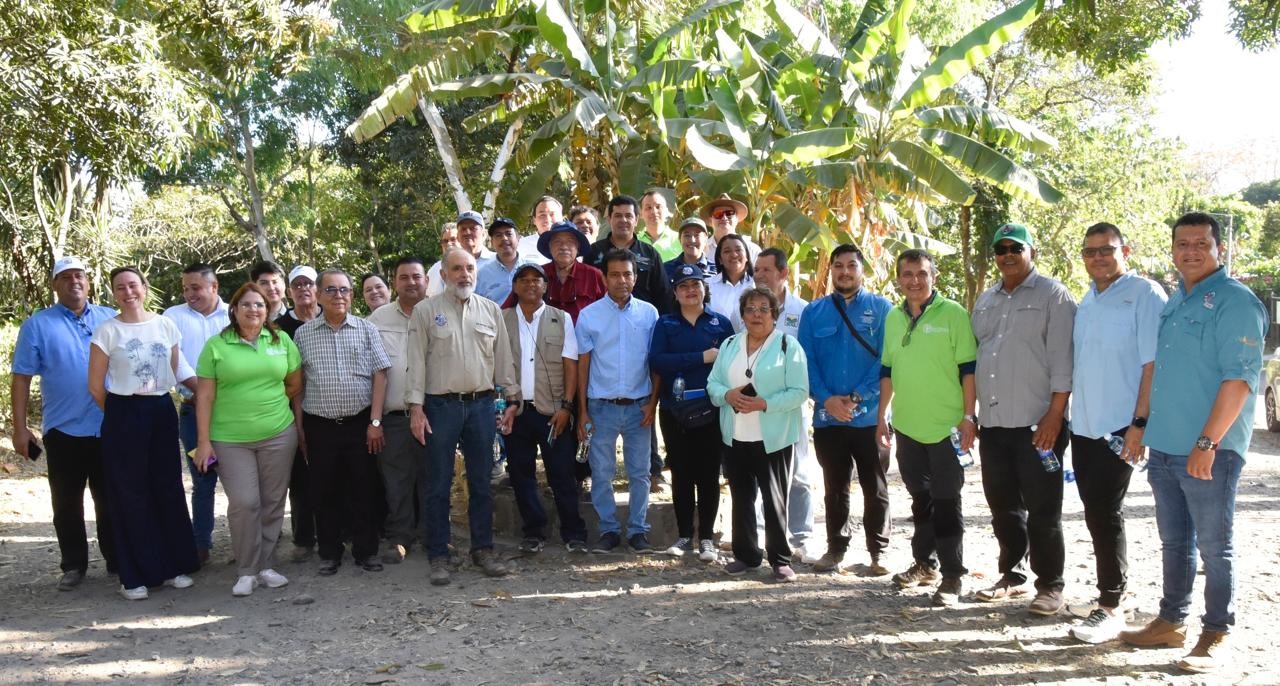SPOTLIGHT: Artificial Intelligence transforms the fight against Fusarium Tropical Race 4 of banana in Mesoamerica
Posted on Mon, 17 Feb 2025, 07:14

Artificial Intelligence (AI) is rapidly transforming everyday life; from providing virtual customer assistance and helping doctors perform complex surgeries to enabling drones for irrigation and fertilizer application. AI is also enhancing plant health and protection with innovative applications and models for rapid detection and diagnosis of plant pests and diseases. AI-based systems use software and real-time data to make decisions that typically require human expertise, making them precise. With the growing pest threat, causing huge crop and economic losses globally and leaving millions at risk of food insecurity, AI and other advanced digital technologies are important pest prevention, control, and management options. Recognizing the urgency to safeguard banana production, farmers’ incomes, and trade, the Mesoamerica region is exploring how AI can help combat Fusarium oxysporum f. sp. cubense Tropical Race 4 (Fusarium TR4), a devastating soil-borne fungus. TR4 has no known cure, making prevention, preparedness, and response difficult.

Recognizing AI as the next frontier in plant protection
From 2-7 February 2025, the Organismo Internacional Regional de Sanidad Agropecuaria (OIRSA), a regional plant protection organization, the International Plant Protection Convention (IPPC) Secretariat, the Inter-American Development Bank (IDB), and the Food and Agriculture Organization of the United Nations (FAO) organized the International Plant Health Innovation Day, focusing on Musaceae (banana family). Held in San Salvador, El Salvador, the event facilitated in-depth discussions on how AI and immersive technologies (Virtual and Augmented Reality) can transform and enhance pest prevention and containment. Participants, including banana producers and phytosanitary technicians from Mexico, Guatemala, Honduras, El Salvador, Nicaragua, Costa Rica, Panama, Colombia, Cuba, and the Dominican Republic also enhanced their understanding of how simulators or predictive models aid phytosanitary surveillance for Fusarium TR4.

During the week-long event, OIRSA exhibited its innovative virtual 3D simulation room that uses AI for monitoring Fusarium TR4, created through the Latin American and Caribbean Platform for Monitoring Musaceae (VigiMusa: Latin American and Caribbean Platform for the Phytosanitary Surveillance of Musaceae). Participants engaged in scenario-based drills that simulated actual TR4 outbreaks, covering every stage from preparedness, case confirmation, response, and containment of infected plants, without the risk of contamination.
Participants were trained to use AI to assess the risk of disease spread, thereby improving their technical preparedness to deal with outbreaks. They also had practical field sessions using drones for Fusarium TR4 surveillance, recognizing AI’s versatility and crucial role in early pest detection, accurate analysis, and effective response planning.
Highlighting AI's advantages in plant health, Sarah Brunel, IPPC Secretariat Officer-in-charge for day-to-day matters said “Artificial Intelligence tools excel at monitoring dynamic pest behaviour, supporting pest surveillance methods. AI uses real-time data, thus minimizing resource wastage, enhancing management efficiency by prioritizing response actions in only critical areas, and promoting environmental protection through reduced indiscriminate pesticides use”.
"The use of innovative platforms and applications allows remote collaboration between agricultural producers, plant health authorities in countries, international organizations and experts in plant health, facilitating the transfer of knowledge and real-time decision making," said Carlos Urias, Plant Health Regional Director, OIRSA.
The event also featured a webinar on identifying, managing and eliminating Banana Bunchy Top Virus (BBTV).
Saving banana crops saves lives and livelihoods
FAO estimates that global banana trade, two-thirds of which originates in Latin America, is about 20 million tonnes or USD 10 billion per year. Available in over 1000 varieties and consumed by about 400 million people, bananas are a vital food and income crop, especially in less developed, low-income and food-deficit countries. However, TR4, considered the most aggressive and destructive fungi in the history of agriculture, is the world’s greatest threat to banana production. In Latin America, it was first detected in 2019 and since then, countries in the region have instituted various prevention and control measures, such as outbreak simulation exercises and phytosanitary capacity evaluation (PCE) to enhance preparedness. By embracing AI and other advanced digital technologies, the Mesoamerica region is leaving no stone unturned to protect crops, boost trade, and safeguard food security.
Related information:

